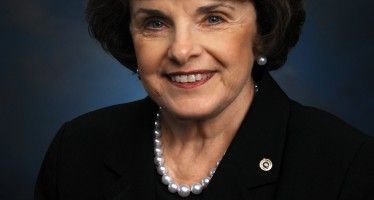Assembly challenger tries to make campaign issue of unreleased tax returns
 The Democratic challenger in an Orange County Assembly race is going after the incumbent, Republican Young Kim, for not releasing her tax returns — just like Hillary Clinton, the Democratic presidential nominee, is doing to Donald Trump, the billionaire Republican presidential nominee.
The Democratic challenger in an Orange County Assembly race is going after the incumbent, Republican Young Kim, for not releasing her tax returns — just like Hillary Clinton, the Democratic presidential nominee, is doing to Donald Trump, the billionaire Republican presidential nominee.
But there’s two differences: While releasing tax returns is a time-honored tradition in presidential elections (as is fighting over them), it’s not common for legislative candidates. And unlike Trump, both candidates’ salary information is mostly available online.
The campaign of Sharon Quirk-Silva — the Democrat who Kim knocked out of office in 2014 — said Kim’s refusal to release her tax returns raises questions about her commitment to transparency: What is she hiding?
Of course, the campaign also concedes it doesn’t necessarily believe Kim’s hiding anything. Matthew Reilly, a Quirk-Silva spokesman, told CalWatchdog that “our politics are being dragged down by people who aren’t on the up and up,” but said he didn’t have much reason to believe Kim isn’t on the “up and up.”
“I don’t know,” Reilly said. “I assume that she is, but I don’t know.”
Quirk-Silva provided five years of tax returns showing her and her husband’s salaries, which were also largely available online because both have been public employees for years.
Reilly did not respond to requests for tax returns from other legislative candidates he works with.
What about Kim?
A spokesman for Kim, Bryan Shroyer, provided only one year of Kim’s tax returns — 2015 — which also showed information that was largely available online — her Assembly salary and benefits.
It also suggested that her husband, Charles Kim, did not draw an income last year, which Shroyer confirmed: “He spent 2015 working as a volunteer for several community organizations.” Charles Kim’s resume, which can be found online, shows years of community activity, with many appointments and volunteer positions.
“We’re not going to play (Quirk-Silva’s) game,” said Shroyer. “Every tax return would continue to show exactly what is already public record. Her salary, interest earned, and holdings are all listed on her Statement of Economic Interests filed with the secretary of state. This is just silly.”
Prior to coming to the Legislature, Kim worked as a congressional staffer for Republican Congressman Ed Royce — she made around $80,000 working for him in 2013. In between her time with Royce and being elected to the Legislature Kim ran what she previously described as a consulting firm for small businesses, which generated only a little income.
Ironically, Kim is the lowest paid member of the Assembly, having refused every pay increase since assuming office in 2015.
Why are we even talking about this?
The practice of releasing tax returns in presidential campaigns dates back to 1952 when another famous Orange County resident, Richard Nixon, suggested he’d release his own tax returns to quell concerns about his finances in an effort to stay on Dwight Eisenhower’s presidential ticket.
Although his Democratic opponents released their tax returns, Nixon ultimately did not (at least until four years later). But the practice became common in the early 1970s, and then in 1978, it became required that presidential and vice presidential candidates make public certain financial information. However, while expected, releasing tax returns is still not a requirement.
“There’s much less history of this in a legislative race,” said Mark Petracca, chair of the Department of Political Science at UC Irvine. “The candidate who asks/demands that an opponent releases his or her returns really has nothing to lose by asking.”
“If the opponent does not release, that can be made into a political issue; if the opponent releases and
there’s something untoward in the filing, that can be made into political hay as well,” Petracca said. “Finally, if the opponent releases and there’s no there there — nothing out of the ordinary — then everyone just moves on.”
“So it costs nothing to insist that they be released. The burden here falls squarely on the opponent and their calculation about whether they are better off releasing or holding back,” Petracca said.
This seat matters
This is one of the most important races in California this cycle — it will help decide the balance of power in the Legislature. Democrats need to pickup only two Assembly seats and one Senate seat to attain a supermajority, where they would be free to increase taxes, among other things, without Republican input.
This seat will also affect the influence of the women’s caucus by potentially adding another member to the Democratic women’s voting bloc. While Kim is a member of the women’s caucus, the legislative focus of the caucus is often divided along party lines.
Related Articles
The Polite Sacramento Tea Party
The tax day Tea Party held at the state capitol in Sacramento was a bustling event, attended by colorful, patriotic
Under fire, Feinstein’s water bill collapses
It has been an uncharacteristically bad week for Sen. Dianne Feinstein, D-Calif. First, her quiet effort to engineer a substantial
University of California finances shakier than cut in tuition implies
Last week, University of California President Janet Napolitano (pictured) and UC regents generated positive headlines with their decision to reduce tuition for




